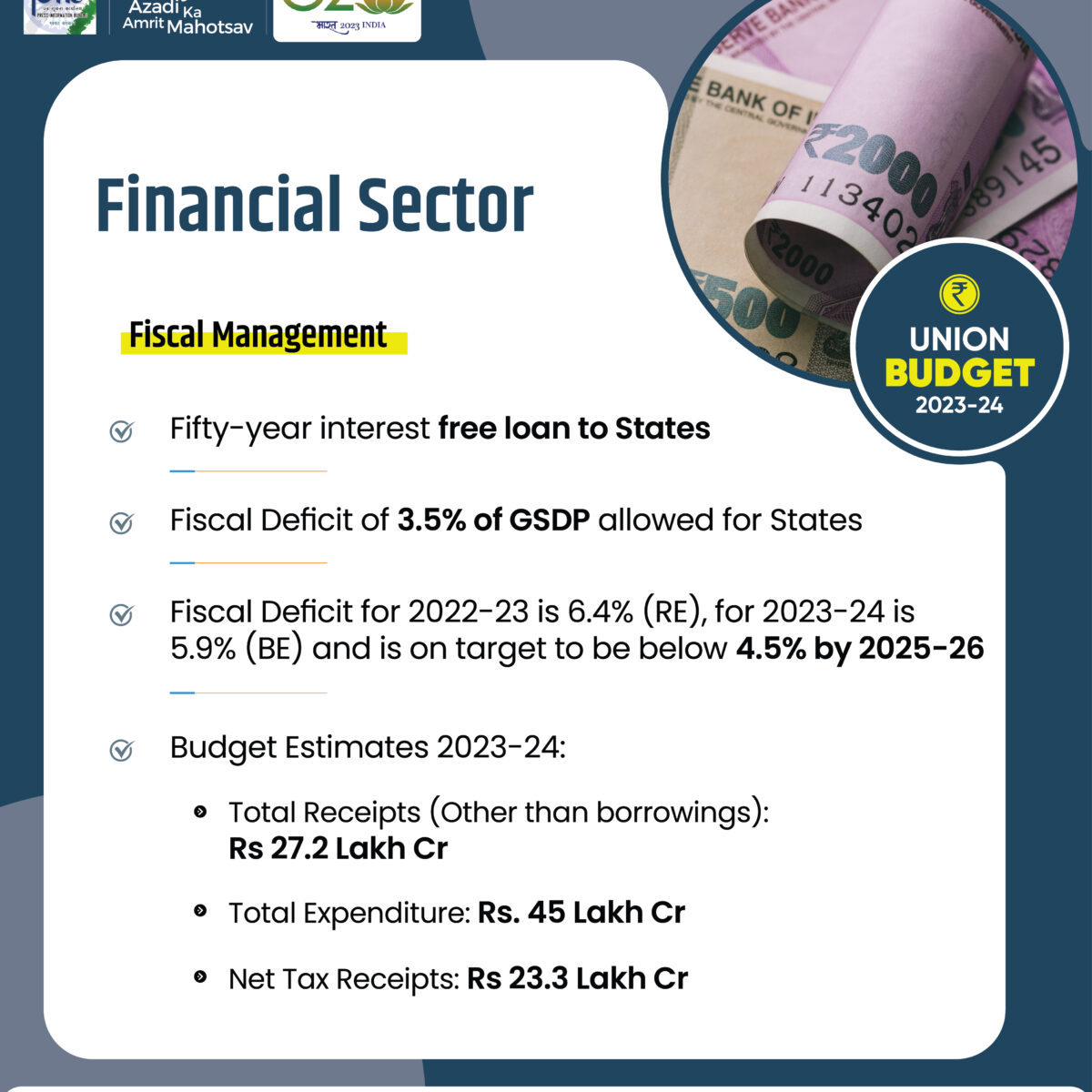The previous budget 2022 has focused on digital and technology to gear up the banking and finance sector which has helped the sector to scale, better and faster service delivery, ease of access to credit and participation in the financial market. The budget 2023 proposes further measures to continue the digitalization as part to reform the sector. Here we are providing outlined policy measurements expected in Union Budget 2023 for finance, banking, insurance, investment and stock sector.
The country is still recovering from the impact of Covid and the danger of global recession looming large, the expectations are higher from the Union Budget 2023.
“Union Budget 2023 can be described as progressive budget with striking a fine balance between focus on growth, rural inclusion and fiscal consolidation.” – Said Mr. Anuj Mathur – MD &CEO Canara HSBC Life Insurance.
The significant updates in the banking sector are
- Improved Governance and Investor Protection – The union budget 2023 emphasized certain amendments in the Banking Regulation Act, the Banking Companies Act and the Reserve Bank of India Act to improve the bank’s governance and enhance more security for the investors.
- Central Data Processing Centre – The union budget 2023 has proposed to set up a central data processing centre for the companies to respond faster due to the country’s digital growth. A data centre facilitates IT operations and equipment for the purposes of storing, processing, and disseminating data and applications.
- Financial Support for Digital Payments – Digital payment has boosted small businesses and street vendors’ income in the country, enabling fast and secure bank-to-bank transactions, even for small amounts. It was all expected that the budget would allocate good support to digital monetary systems assuring continuous financial support for the digital public infrastructure in 2023-24.
Applauding the Union Budget, Anurag Sinha, Co-Founder & CEO of OneScore & OneCard said, “With the right policy framework and incentives, India can continue to be a leader in the digital economical space and become one of the most innovative countries in the world.
- Introduction to Mahila Samman Bachat Patra – The scheme will offer deposits up to Rs 2 lakh for women and girls over a period of 2 years at a fixed interest rate of 7.5 per cent with a partial withdrawal facility to empower women till March 2025.
- Benefits for Senior Citizens – The scheme will offer deposits up to Rs 2 lakh for women and girls over a period of 2 years at a fixed interest rate of 7.5 per cent with a partial withdrawal facility.
- Data Embassy – The union budget 2023 proposed to set up data embassies in GIFT IFSC to the country’s digital continuity solutions to enable more innovative fintech services.
Moreover, there are more announcements for finance and banking sectors for the betterment of the industry.
- Credit Guarantee Schemes for MSMEs have been revamped and will be effective from 1st April 2023, through the infusion of Rs. 9000 crore in corpus.
- Setting up of the National Financial Information Registry for efficient lending, financial inclusion and financial stability.
- Maximum deposit limit for monthly income account scheme will be enhanced from Rs. 4.5 lakh to 9 lakh for single account and from Rs. 9 lakh to Rs. 15 lakh for a joint account.
- Agriculture credit target increased by 11.11% to Rs. 20 lakh crore with a focus on animal husbandry, dairy and fisheries.
- The KYC process will be simplified by adopting a ‘risk-based’ instead of a ‘one size fits all’ approach. The financial sector regulators will be encouraged to have a KYC system fully amenable to meet the needs of Digital India.
- To improve bank governance and enhance investors’ protection, certain amendments to the Banking Regulations Act, the Banking Companies Act and the Reserve Bank of India Act are proposed in the union budget 2023.
- Fiscal support for digital public infrastructure will continue in 2023-2024.
- To facilitate optimum regulation in the financial sector, public consultation, as necessary, will be brought to the process of regulation-making and issuing subsidiary directions.
- Financial sector regulators will carry out a comprehensive review of the existing regulations. Moreover, time limits to decide the applications under various regulations will also be laid down.
- Delegating powers under the SEZ Act to IFSCA to avoid dual regulation.
- Permitting acquisition financing by IFSC Banking Units of foreign banks.
- Amending IFSCA Act for statutory provisions for arbitration, ancillary services, and avoiding dual regulation under SEZ Act.
- SEBI is empowered to develop, regulate, maintain and enforce norms and standards for education in the National Institute of Securities Markets and to recognize award of degrees, diplomas and certificates.
- The entire fifty-year interest free loan to states to be spent on capital expenditure within 2023-24. Part of the loan is conditional on States increasing actual Capital expenditure and parts of outlay will be linked to States undertaking specific loans.
There were no direct proposals to benefit these sectors. However, the amendments proposed here are for reforming the banking sector. The union budget’s other key implementations are likely to impact the working of banks. The simplification of the KYC process is one among them which will force the bank to change its developed KYC system and adopt the simplified new measure.
(Image Source : PIB)








